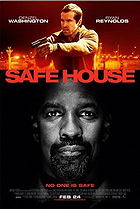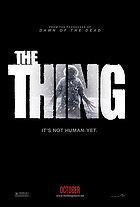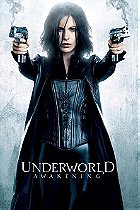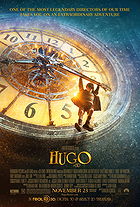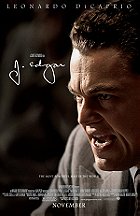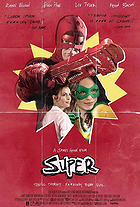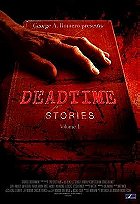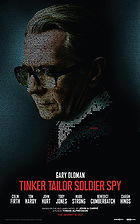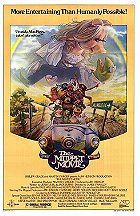Troll Hunter (or Trolljegeren) is an ingenious little Norwegian import, a found footage production with sturdy visual effects, convincing acting and a crafty script. It's a mockumentary willing to go above and beyond the call of duty, taking the time to build a rich sense of universe lore and introduce a thoroughly fascinating central character. Found footage pictures often grow banal due to their deadly serious disposition, which is why the genre has ostensibly passed its use-by date. It's also why Troll Hunter is so wonderfully refreshing, as it puts a realistic found footage spin on a fantastical premise while simultaneously being playfully jokey. Director/co-writer André Øvredal does not set out to bore us with straight horror; he wants us to have a good time with this agreeably tongue-in-cheek ride, providing a lively, sorely needed jolt for this much-maligned subgenre.

When evidence arises in the Norwegian town of Volda that unorthodox bear poaching is occurring, college students Thomas (Glenn Erland Tosterud), Johanna (Johanna Mørck) and Kalle (Tomas Alf Larsen) grab their filmmaking gear to conduct journalistic research. Their expedition soon leads them to the enigmatic Hans (Otto Jespersen), and they start pressing the gruff man for questioning. As it turns out, the grizzled Hans is not a bear poacher but a troll hunter working for the covert Troll Security Service organisation, who is tasked with controlling any trolls who wander past their boundaries. Hans accepts the students as observers, leading them around the country as they learn about troll mythology and stumble upon various monsters. But Thomas and his crew are also ignorant and refuse to realise the danger that will come from their filmmaking attention.
The history of the trolls and the Troll Security Service is pure gold, and it is clear that a lot of thought went into devising the flick's internal lore. For instance, since it is commonly accepted that trolls turn to stone in sunlight, Hans carries around a UV gun and has UV lights mounted on his jeep to combat them. The script even provides a scientific explanation to plausibly explain why the sun turns trolls to stone. Furthermore, Øvredal projects the film's mythology onto everyday findings to amusing effect. In one scene, for example, the characters find a typical open landscape beset with rocks, which, as it turns out, is actually a troll battlefield. Øvredal healthily retains this splendid sense of humour throughout, and it's small details like these that give Troll Hunter more depth than other pictures of this ilk.

Key to Troll Hunter's success is the character of Hans. A bit like Quint from Jaws, Hans is a gruff old bastard who has seen his fair share of action and has grown weary of his unrewarding trade. In a less skilful movie, there would not be any believable motive for Hans to allow college kids to film him, but Øvredal realises the importance of making us believe Hans's decision, and it works. See, troll hunting is, in fact, a drab profession - Hans is merely an unsung hero whose phenomenal achievements are shielded from the general public. Controversial Norwegian comedian Otto Jespersen is a perfect fit for this character, as he looks the part and has the right persona to match. Jespersen works particularly well because of his nonchalant attitude - Hans clearly does not give a shit, treating life-threatening battles as if he's just mowing the lawn. For example, after putting on ridiculous-looking armour to protect himself as he prepares to kill a troll, Hans merely quips, "I'm so sick of this shit."
On top of being genuinely hilarious and enjoyably tongue-in-cheek, Troll Hunter is truly exciting and interesting when it wants to be. The troll designs are undeniably hammy, yet the digital effects that bring them to life are incredibly vivid and realistic, allowing us to believe that these mythical creatures exist. Øvredal is a skilled filmmaker, too, as the various troll encounters are excellent, especially the awe-inspiring climax. But while the film is a rollicking good time for most of its duration, the final act suffers a tonal identity crisis. Øvredal suddenly takes certain things a tad too seriously, abandoning the light-hearted approach for no viable reason. As a result, Troll Hunter's new car smell wanes and it starts to feel as if the premise has been stretched out a bit too much. The tonal change also leads to a rather unsatisfying ending, though the brilliant post-movie captions close the door on a more positive note.

Troll Hunter's American remake rights were promptly snatched up even before it was released in the U.S.A., which is nonsensical. The transition from Norway to America is an impossible proposition since the story and all of the troll mythology are specific to Norway's cultural heritage, and there is no American equivalent. Mark my words: you must watch the original film before it is bastardised. Troll Hunter may be subtitled, but this low-budget gem is indispensable. It's easily the best, most inventive found footage movie in years.
7.9/10
 Login
Login
 Home
Home 183 Lists
183 Lists 1670 Reviews
1670 Reviews Collections
Collections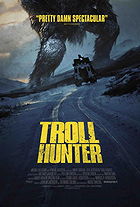
 0 comments,
0 comments, 